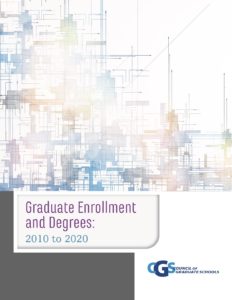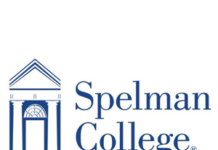 A new report from the Council on Graduate Schools offers a look at enrollments in graduate schools in the United States after the onset of the global pandemic. While enrollments in undergraduate colleges and universities and most notably enrollments in two-year colleges dropped after the onset of the pandemic, graduate enrollments increased by 2.5 percent from 2019 to 2020.
A new report from the Council on Graduate Schools offers a look at enrollments in graduate schools in the United States after the onset of the global pandemic. While enrollments in undergraduate colleges and universities and most notably enrollments in two-year colleges dropped after the onset of the pandemic, graduate enrollments increased by 2.5 percent from 2019 to 2020.
In the fall of 2020, 53,754 African Americans enrolled in graduate school for the first time. African Americans made up 12.3 percent of all first-time graduate enrollees from the United States in 2020. Of these, 69.4 percent were women.
Blacks were 17.4 percent of total first-time enrollments in graduate programs in public administration. But Blacks were only 4.4 percent of first-time graduate enrollment in physical sciences and 6.2 percent in engineering.
In 2019, there were 185,116 African Americans enrolled in all levels of U.S. graduate schools. Of these more than 70 percent were women.
The full report, Graduate Enrollment and Degrees: 2010 to 2020, may be downloaded by clicking here.











What do have here another misleading report as it pertains to “native born Black Americans” enrolled in graduate school. It appears that Enyu Zhou and Janet Gao are totally oblivious in knowing the difference between native born Black Americans and African & Caribbean immigrants. Yes, I’m not talking about “international students from the continent of Africa and the Caribbean. I’m specifically referring to those Africa & Caribbean who are in the US legally.
As a result, their empirical data is inherently flawed on numerous levels. One should not be too surprised given the fact that both Enyu Zhou and Janet Gao hail from homogenous societies which inhibits their research on this topic.
RastafarI love.
I am a Second Generation Transnational American of Ayiti descent. I was born in Brooklyn, I spent a good portion of my formative years in Ayiti where both of my parents were born. I am comfortable with the authors for referring to me as a Native born (black) but I prefer CADOS or Caribbean American Descendants of Slaves similar to American Descendants of Slaves.
I want to read the study so I can learn more about the enrolment of blacks in Graduate Programs at U.S. Universities.
So far, the main difference seems to be that women are way more likely to enrol in graduate school than men!
Blessed #Ayiti #1804 #Housesforthehomelesd
This report is highly misleading and grossly inaccurate because it relies on a biased, incomplete and inaccurate methodology used by Carnegie to define universities that awarded graduate degrees, especially those conferring doctorates. For example, Walden University awarded doctorates to more African American students than the top nine universities below it. Walden University also awarded more doctorate degrees to women than any other university including those classified by Carnegie. Yet, Walden University is not included on either the R1, R2, or D/PU list which excludes a huge population of African Americans and women, Therefore, this report is inaccurate.